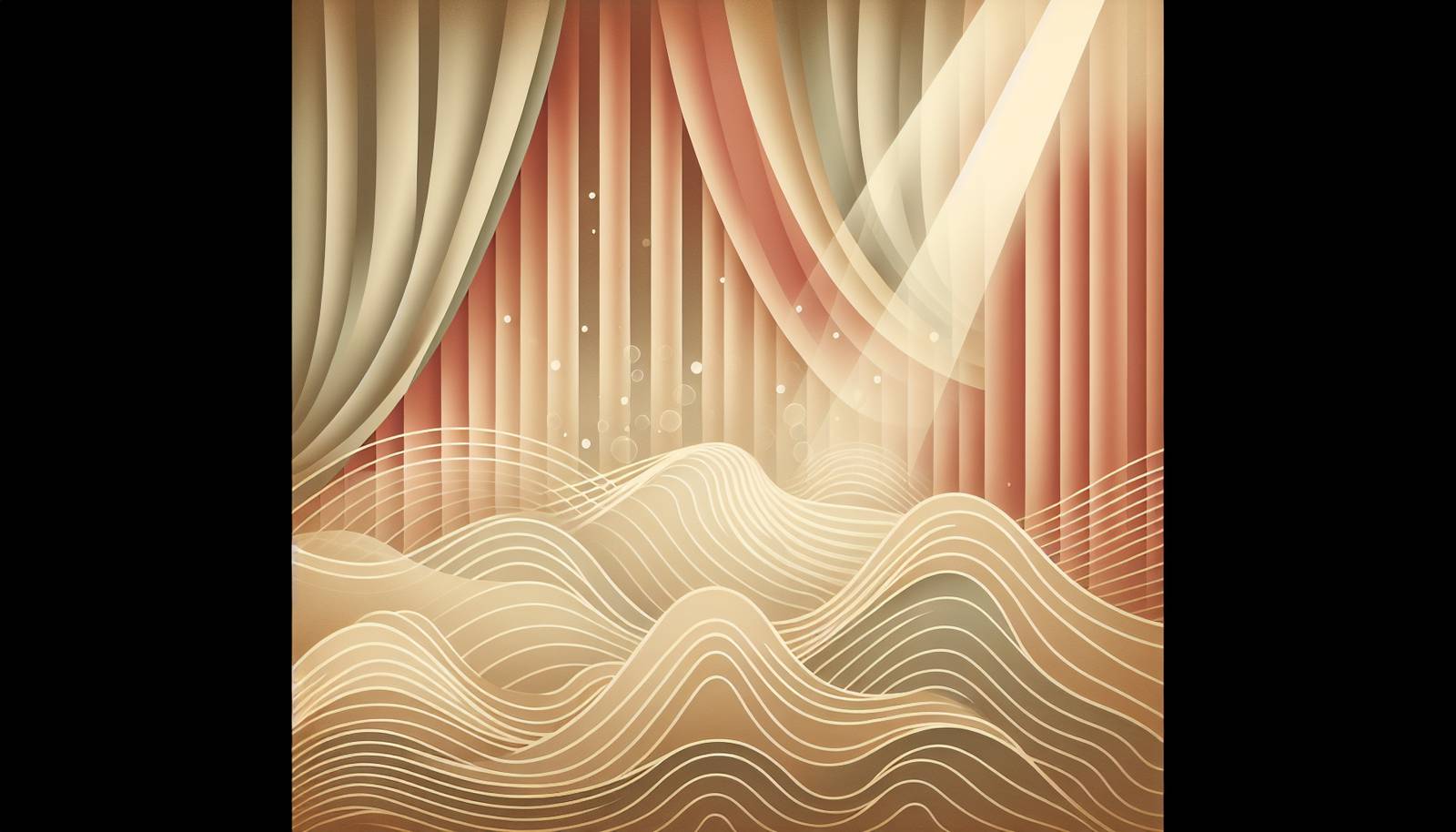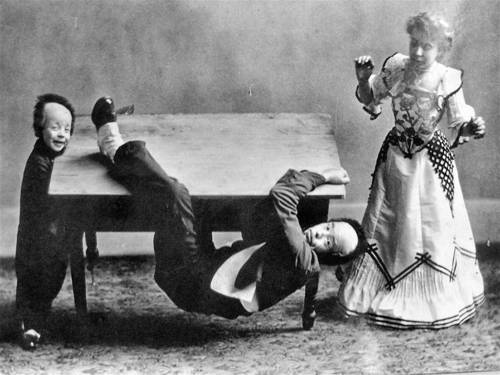
FAQ About The Influence of Vaudeville on Entertainment Industry

What was Vaudeville?
Vaudeville was a theatrical genre of variety entertainment popular in the United States and Canada from the early 1880s until the early 1930s. It featured a series of separate, unrelated acts grouped together on a common bill. Popular acts included musicians, dancers, comedians, trained animals, magicians, and other professionals performing into the early 20th century.

How did Vaudeville influence modern television shows?
Vaudeville influenced modern television by establishing the variety show format, which became a staple in TV programming. Shows such as "The Ed Sullivan Show" and "Saturday Night Live" carry on the Vaudeville tradition of blending multiple performance types including comedy, musical numbers, and sketches.

In what ways did Vaudeville contribute to the development of American comedy?
Vaudeville was instrumental in shaping American comedy by popularizing stand-up routines and physical comedy, which have become foundational elements of comedic acts. Many famous comedians like Buster Keaton and the Marx Brothers started their careers in Vaudeville, where they honed their skills in timing, delivery, and audience interaction.

What impact did Vaudeville have on theater productions?
Vaudeville had a significant impact on theater productions by introducing a more casual and interactive style of performance, which influenced musical theater and Broadway productions. Its emphasis on variety and entertainment value laid groundwork for the development of more dynamic and engaging theatrical performances.

How did Vaudeville impact the film industry?
Vaudeville's influence on the film industry is evident in the transition of many Vaudeville acts to early film, bringing elements like slapstick and musical performances to the screen. Silent films especially drew heavily on Vaudevillian humor and physical comedy, shaping the style of early cinema.

What were some common acts performed in Vaudeville shows?
Common acts in Vaudeville shows included comedians, musicians, dancers, magicians, acrobats, jugglers, ventriloquists, and trained animal performers. The wide variety of acts ensured that there was something for everyone, maintaining its broad appeal across different audiences.

Who were some famous Vaudeville performers?
Famous Vaudeville performers include Buster Keaton, Charlie Chaplin, the Marx Brothers, W.C. Fields, and Mae West, among others. These individuals often transitioned into film and other entertainment media, extending their influence and adapting their Vaudevillian roots to new formats.

What distinguished Vaudeville from other forms of entertainment at the time?
Vaudeville was distinguished from other forms of entertainment by its variety, accessibility, and emphasis on family-friendly content. Unlike burlesque or minstrel shows which catered to more niche audiences, Vaudeville was designed to appeal to the masses with a wide array of acts and performances.

How did Vaudeville shows contribute to social and cultural integration?
Vaudeville contributed to social and cultural integration by bringing together performers and audiences from various ethnic backgrounds and social classes. While some acts perpetuated stereotypes, the diverse lineup also showcased a range of talents and cultural expressions, paving the way for a more inclusive entertainment industry.

What led to the decline of Vaudeville?
The decline of Vaudeville was largely due to the rise of motion pictures and radio, which provided new and more convenient forms of entertainment for the public. As these technologies advanced, Vaudeville struggled to compete and gradually lost its audience and profitability, leading to its eventual demise.

Are there any modern equivalents of Vaudeville?
Modern equivalents of Vaudeville can be seen in variety shows, talent competitions, and sketch comedy programs. Television shows like "America's Got Talent" and "The Tonight Show" continue the tradition of mixing various forms of entertainment to appeal to broad audiences.

How did Vaudeville impact live performances today?
Vaudeville has had a lasting impact on live performances by setting a precedent for diverse and interactive shows. Modern live performances in comedy, magic, and variety acts often draw inspiration from Vaudevillian traditions, focusing on engaging and entertaining audiences through multifaceted performances.

Did Vaudeville influence radio programming?
Yes, Vaudeville influenced radio programming by inspiring variety show formats that became popular in radio's early days. Many Vaudeville performers transitioned to radio, bringing their scripted sketches, musical numbers, and comedic acts to a new medium.

What types of venues hosted Vaudeville shows?
Vaudeville shows were hosted in a variety of venues including theaters, opera houses, and smaller playhouses spread across urban and rural areas. These venues aimed to accommodate the huge popularity of Vaudeville and were often strategically located in bustling city centers to attract diverse audiences.

How were Vaudeville shows typically structured?
Vaudeville shows typically consisted of a series of short acts, each lasting a few minutes, with a wide range of performance styles showcased back-to-back. The shows were designed to keep the audience entertained with quick transitions between acts, maintaining a lively and engaging atmosphere throughout the performance.

Did Vaudeville play any role in the evolution of musicals?
Vaudeville played a crucial role in the evolution of American musicals by experimenting with integrating music, dance, and storytelling, essential to traditional musical theater. This integration inspired later musical theater productions and contributed significantly to the development of popular Broadway shows.

How did technology impact Vaudeville?
Technology impacted Vaudeville significantly, particularly with the advent of films and radio, which offered new entertainment formats that eventually overshadowed live performances. These technologies introduced more visual storytelling methods and audio entertainment, leading to a decline in Vaudeville's popularity.

Were there any Vaudeville acts that were considered controversial?
Some Vaudeville acts were considered controversial, particularly those that involved racial or ethnic stereotypes, which were unfortunately common at the time. While some performances reflected societal prejudices, Vaudeville also provided a platform for diverse cultural expressions and counter-narratives.

What was the audience demographic for Vaudeville shows?
The audience demographic for Vaudeville shows was quite diverse, attracting people from varying socio-economic, ethnic, and cultural backgrounds. The eclectic mix of acts performed in Vaudeville was designed to appeal to as broad an audience as possible, making it a popular form of entertainment among different groups.

How is Vaudeville remembered today in the entertainment industry?
Today, Vaudeville is remembered as a pioneering force in early 20th-century entertainment. Its influence is still evident in the prevalence of variety-style programming, stand-up comedy, and the incorporation of diverse performance styles in live and recorded media. Many entertainers still draw inspiration from Vaudeville's rich history and traditions.
